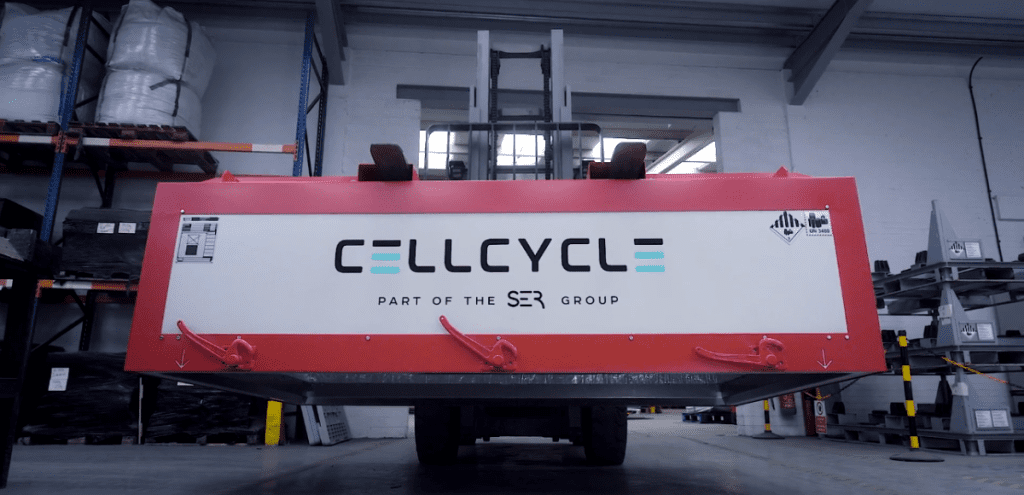1. Introduction
You definitely heard the word “Lithium” when you talked about batteries, but do you know when you talk about “Lithium” you may actually talk about Lithium-ion batteries? Yeah, they are different things. These battery types have different compositions, performance characteristics, and life expectations. As the well-known term regarding battery, it is important to have a clear understanding of these differences as they directly affect how we use batteries in our daily lives. This blog delves into the details of lithium-ion and lithium batteries, exploring their applications and providing insights on their life expectancy.
Sources from: https://unsplash.com/
2. What is the difference between lithium-ion and lithium batteries?,(Murden 2023),
While both lithium-ion and lithium batteries share the common element of lithium, there are significant differences in their composition and performance characteristics. Lithium-ion batteries, also known as Li-ion batteries, are rechargeable and widely used in everyday electronics such as smartphones, laptops, and digital cameras. These batteries are known for their high energy density and long cycle life, meaning they can be recharged and discharged many times before their performance starts to decline .
On the other hand, lithium batteries, sometimes referred to as primary lithium batteries, are non-rechargeable and have a more limited life expectancy. They are commonly used in devices that require a long shelf life, such as smoke detectors and calculators. Lithium batteries offer a higher initial voltage and better performance in extreme temperatures compared to lithium-ion batteries, but once they are depleted, they cannot be recharged.
Understanding these distinctions is crucial when choosing the right battery for your specific needs. In the upcoming sections, we will explore the applications and advantages of both lithium-ion and lithium batteries in more detail. Stay tuned!
3. The advantages of lithium-ion batteries ,(Battery Uni 2022)
In this section, we will delve into the advantages of lithium-ion batteries. As mentioned earlier, lithium-ion batteries have become the preferred choice for a wide range of electronic devices. One of the main advantages of these batteries is their high energy density. This means that they can store more energy in a smaller and lighter package compared to other battery types.
Another key advantage of lithium-ion batteries is their long cycle life. They can be recharged and discharged numerous times without significant degradation in performance. This makes them ideal for devices that require frequent charging, such as smartphones and laptops. Additionally, lithium-ion batteries have a relatively low self-discharge rate, meaning they can hold their charge for longer periods when not in use.
Moreover, lithium-ion batteries offer a high power density, enabling them to provide a consistent and reliable power supply to high-demand devices. They also have a low maintenance requirement, eliminating the need for periodic draining and full recharging.n
These advantages make lithium-ion batteries the go-to choice for portable electronics and electric vehicles. In the next section, we will discuss the applications and benefits of lithium batteries. Stay tuned to gain a comprehensive understanding of their unique features!
4. The advantages of lithium batteries(Battery Uni 2022)
As we have learned, lithium-ion batteries have numerous advantages for a variety of electronic devices. However, it is important to note that lithium batteries, although similar in composition, differ from lithium-ion batteries in certain aspects.
One of the distinct advantages of lithium batteries is their higher energy density compared to lithium-ion batteries. This means that lithium batteries can store even more energy in a smaller and lighter package. Their higher energy density makes them ideal for applications that demand high power output in a compact size, such as power tools and electric vehicles.
Furthermore, lithium batteries have a longer shelf life than lithium-ion batteries. They have a lower self-discharge rate, allowing them to retain their charge for longer periods of time. This makes them suitable for devices and systems that require infrequent charging or have long standby periods.
Additionally, lithium batteries are known for their exceptional performance at extreme temperatures. They can operate efficiently in both high and low-temperature environments, making them suitable for applications like aerospace, military, and marine industries.
In the following section, we will explore the differences and specific applications of lithium batteries in more detail. Stay tuned to gain a comprehensive understanding of this alternative power source.
5. Disadvantages and limitations of lithium-ion batteries(Battery Uni 2022)
While lithium-ion batteries are widely used and offer many advantages, it is important to consider their limitations as well. One of the main drawbacks of lithium-ion batteries is their sensitivity to high temperatures. Exposure to extreme heat can cause irreversible damage to the battery, leading to reduced performance and lifespan. It is crucial to avoid exposing these batteries to direct sunlight or leaving them in hot environments for an extended period.
Another limitation of lithium-ion batteries is their potential for thermal runaway. In rare cases, a malfunction or internal short circuit can cause the battery to overheat and ignite. To minimize this risk, manufacturers have implemented safety features such as protective circuits and thermal management systems. However, it is important to handle and store lithium-ion batteries properly to prevent accidents.
Furthermore, lithium-ion batteries have a limited lifespan and degrade over time. After a certain number of charge cycles, the battery’s capacity begins to decline, affecting its overall performance. It is essential to monitor the battery’s health and replace it when necessary to ensure continued reliability.
In the next section, we will delve into the different types of lithium-ion batteries and their specific applications. Stay tuned to learn more about the intricacies of these batteries and how they power various devices in our daily lives.
6. Disadvantages and limitations of lithium batteries (Battery Uni 2022)
Disadvantages and limitations of lithium batteries
In addition to the previously mentioned limitations of lithium-ion batteries, it is important to understand that all types of lithium batteries have certain drawbacks and limitations. One major disadvantage is their high cost compared to other battery technologies. The complex manufacturing process and the use of expensive materials contribute to their higher price point.
Another limitation is the relatively low energy density of lithium batteries. While they have a higher energy density compared to other rechargeable batteries, such as nickel-cadmium or lead-acid batteries, they still have lower energy density compared to some alternative energy storage technologies. This means that lithium batteries may not offer as much power or storage capabilities for certain applications.
Additionally, lithium batteries require proper handling and disposal due to their potential environmental impact. These batteries contain toxic chemicals and heavy metals that can be harmful if not handled or disposed of correctly. It is crucial to follow proper guidelines and recycling processes to minimize environmental damage.
Despite their limitations, lithium batteries continue to be widely used due to their numerous advantages and applications. In the next section, we will dive deeper into the specific applications and advantages of lithium batteries in various industries. Stay tuned to learn more about the versatility and power of these batteries.
7. Choosing the right battery for your needs
When it comes to choosing the right battery for your needs, it is essential to consider the specific requirements of your application. While lithium batteries may have their limitations, they also offer several advantages that make them an attractive choice for many industries.
One key advantage of lithium batteries is their high energy density. This means they can store a significant amount of energy in a compact size, making them ideal for portable electronic devices and electric vehicles. Their lightweight nature and long lifespan also make them a popular choice for applications where weight and durability are important factors.n
Moreover, lithium batteries have a low self-discharge rate, allowing them to hold their charge for an extended period. This makes them suitable for devices that are not frequently used or require long-term storage, such as emergency backup systems and medical devices.
Furthermore, lithium batteries have a high charge/discharge efficiency, meaning they can efficiently convert stored energy into power. This efficiency is crucial for applications that demand high power output, such as power tools and renewable energy storage.n
In the following sections, we will explore how various industries benefit from the unique advantages of lithium batteries. Whether you’re in the electronics, automotive, or renewable energy sector, understanding the specific applications and advantages of lithium batteries will help you make an informed decision. So, let’s delve into the world of lithium battery applications and find the perfect fit for your needs.
8. Conclusion & Recommendation
In conclusion, understanding the distinctions between lithium-ion and lithium batteries is crucial for making an informed decision when choosing the right battery for your needs. While lithium batteries have their limitations, they offer several advantages that make them a popular choice in various industries.n
The high energy density, lightweight nature, and long lifespan of lithium batteries make them ideal for portable electronic devices, electric vehicles, and applications where weight and durability are important factors. Their low self-discharge rate also makes them suitable for devices that require long-term storage or are not frequently used.
Additionally, the high charge/discharge efficiency of lithium batteries is crucial for applications that demand high power output, such as power tools and renewable energy storage.
By understanding the specific applications and advantages of lithium batteries, you can make an informed decision that suits your industry and requirements. So, delve into the world of lithium battery applications and find the perfect fit for your needs.n
Regardless of whether you choose a Li-ion or Lithium battery, it will inevitably reach the end of its lifespan. Picture the potential environmental impact of millions of tons of used batteries, leading to unpredictable pollution. If these discarded batteries could be properly disposed of, it would significantly contribute to the preservation of our environment and natural resources. That’s exactly what our fully licensed team can do. We recycle the valuable components of these batteries, giving them a second life. Contact our battery recycling team ,here to learn more.


